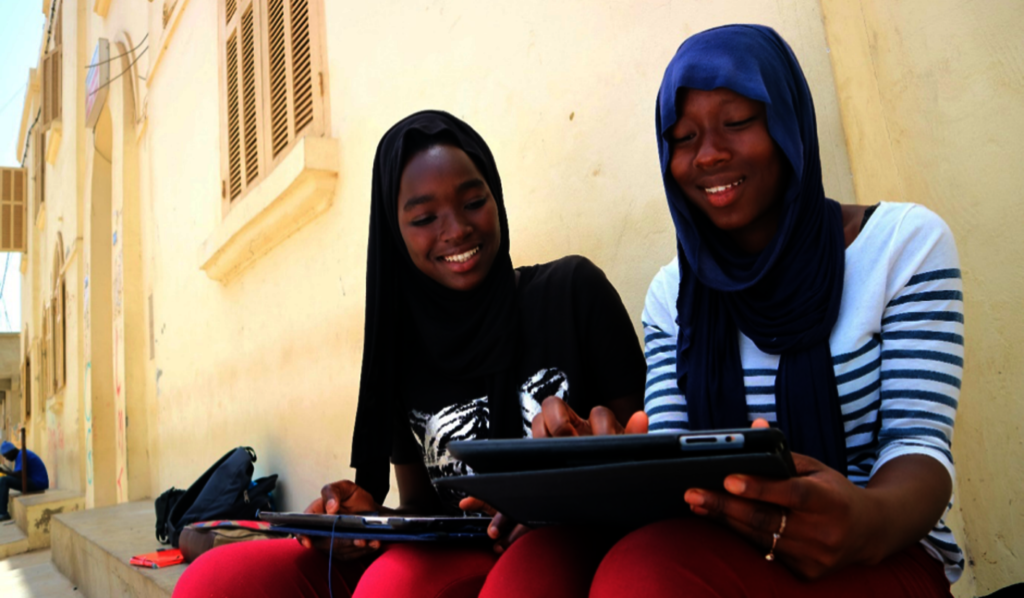Project Report
| Jul 22, 2019
Update: Empowering Women and Girls
By Whitney Simon | Manager, UNICEF USA
![]()
Dear Friend,
Thank you for your support of UNICEF’s Empowering Women and Girls Project! Due to your generosity, UNICEF was able to implement programs around the world that help vulnerable women and girls. Examples of these UNICEF programs include:
- Enhancing digital skill development for adolescent girls. In some contexts, girls are being left behind in developing digital and technological skills due tolong-standing gender norms. UNICEF is working to bridge this gap.Through networks of Innovation Hubs,UNICEF Tajikistan and UNICEF Jordan offer trainings for adolescent girls to help them acquire 21st century skills, digital skills, social entrepreneurship skills and access to jobs. In Bolivia, UNICEF continues to support Technovation, a program focused on building digital skills for adolescent girls aged 10-18.
- Supporting the protection of women and girls at risk of or exposed to gender-based violence. Girls have a higher risk of experiencing gender-based violence, especially during humanitarian emergencies. In 2018, nearly 1.3 million women, girls and boys in humanitarian contexts received prevention and response services such as clinical health services, distribution of dignity kits, safe spaces and community safety planning. In non-emergency settings, more than 2 million boys and girls who experienced violence were reached by health, social work or justice and law enforcement services. In Ghana for example, UNICEF supported gender-sensitivity training on sexual violence case management and child-friendly policing for nearly 3,000 social workers and police officers.
- Promoting girls’ health throughout their life cycle. Millions of adolescent girls face unique, gender-specific health vulnerabilities, with lifelong consequences: early pregnancy, higher risks of HIV and cervical cancer, and inadequate nutrition. In addition, studies show that adolescent girls drop out of secondary school partially driven by the lack of understanding about ways to manage menstrual hygiene. As more UNICEF country programs prioritize dignified menstrual health and hygiene results, coverage of facilities and services for girls has expanded, coupled with improved access to water and sanitation facilities at schools for girls and boys. Through UNICEF support, sex-segregated water, sanitation and hygiene (WASH) facilities were provided in 7,710 schools in 70 countries in 2018.
We appreciate your continued support of women and girls around the world through UNICEF’s programs. You will continue to receive updates on the progress UNICEF is making to improve the lives and futures of women and girls around the world, learning how you are creating an impact.
Sincerely,
Whitney Simon
![Share on Twitter]()
![Share on Facebook]()
May 1, 2019
Update: Unlocking Opportunity for Women and Girls
By Whitney Simon | Manager, Global Cause Partnerships
![UNICEF TechnoGirl Participants in South Africa]()
UNICEF TechnoGirl Participants in South Africa
Dear Friend,
Thank you for your support of UNICEF’s Empowering Women and Girls Project! Due to your generosity, UNICEF was able to implement programs around the world that help vulnerable women and girls. Examples of such implementation include:
- Opening doors to a better future through studying the sciences in the Techno Girls program in South Africa. Techno Girls is a groundbreaking STEM (science, technology, engineering, math) initiative that challenges harmful gender norms in education and is inspiring the next generation of female innovators and leaders in South Africa. Girls in the Techno Girls program also have internship opportunities, giving them a competitive edge for their future endeavors.
- Providing vaccinations and prenatal and postnatal care to keep themselves and their newborns healthy through UNICEF’s Maternal and Neonatal Tetanus elimination initiative, which has helped eliminate this deadly disease from all but 13 countries worldwide.
- Building safe and secure toilets at school with running water so they can manage their menstrual hygiene. Studies show that adolescent girls drop out of secondary school at a higher rate than adolescent boys – a statistic partially driven by the lack of understanding about and ways to manage menstrual hygiene. UNICEF is working in schools around the world to provide information and education on menstrual hygiene management to students and teachers, as well as to improve water, sanitation and hygiene (WASH) programs in schools so that adolescent girls can manage their menstruation safely and with dignity, helping further their education and prospects for the future.
We appreciate your continued support of women and girls around the world through UNICEF’s programs. You will continue to receive updates on the progress UNICEF is making to improve the lives and futures of women and girls around the world, learning how you are creating an impact.
Sincerely,
Whitney Simon
![Share on Twitter]()
![Share on Facebook]()
